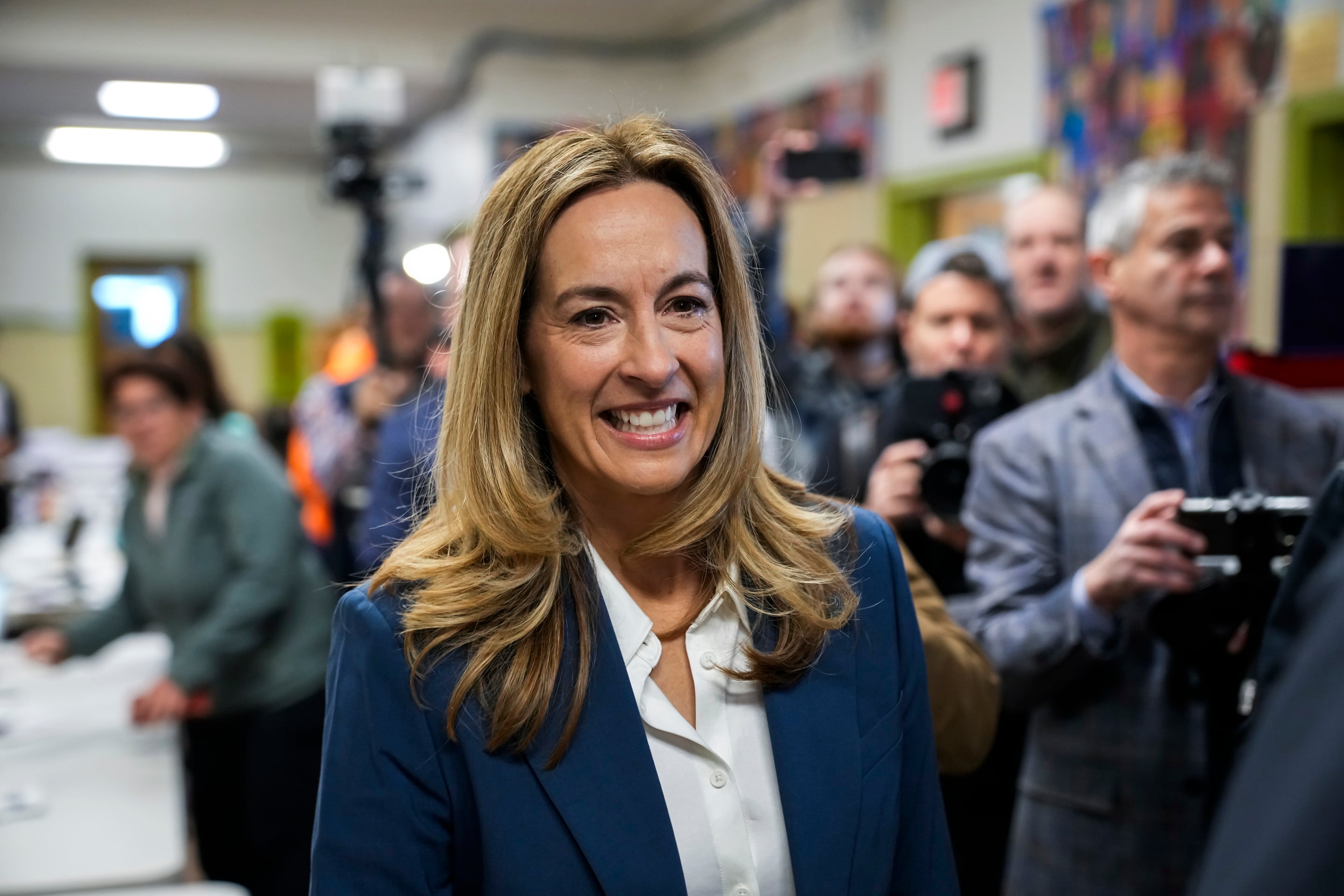Sign up for Chalkbeat Newark’s free newsletter to get the latest news about the city’s public school system delivered to your inbox.
Democrat Mikie Sherrill will be New Jersey’s next governor, delivering a sharp rebuke to Republicans who hoped to uproot the state’s school funding formula, expand the charter school sector, and launch a private school voucher program.
The Associated Press called the race for Sherrill Tuesday evening.
“I hear you, Newark. I’m going to work with communities from the ground up so all of our neighbors thrive,” Sherrill said late Tuesday evening. “I’m going to make sure our kids are safe online and schools have the resources they need to address the mental health crisis.”
Sherrill, a U.S. congresswoman since 2019 whose district includes Essex County, has pledged to invest in tutoring, student mental health, and equity in schools, largely echoing policies laid out by Democratic Gov. Phil Murphy.
But notably, she and her opponent, Republican Jack Ciattarelli, both vowed to expand the state’s Interdistrict Public School Choice Program, which allows students to attend a public school in a different district. That expansion could mean Newark may participate for the first time.
With more than 84% of ballots counted, the unofficial election results as of 10:15 p.m.:
Democrat Mikie Sherrill: 56.3% (1,549,432 votes)
Republican Jack Ciatarelli: 43.1% (1,187,437votes)
On the campaign trail, Sherrill did not make education issues central to her agenda, and her positions did not stray much from those of her predecessor, Murphy. Her election likely means Newark Public Schools will continue to enjoy the degree of local control they wrested back from the state five years ago.
The Newark Teachers Union endorsed Sherrill and president John Abeigon said he hopes she’ll further some of Murphy’s initiatives, such as the creation of teacher taskforces and boosting teacher pensions.
Sherrill has also said she would modernize the state’s school funding formula, originally written in 2008. Newark, the state’s largest school district, has historically been one of the most underfunded. This school year, 84% of the district’s budget came directly from state aid, and any changes in funding or policy could affect teacher hiring, tutoring programs, and support for the district’s most vulnerable students.
Abeigon thinks updating the formula is a good idea, but said he would urge the state to bring in teachers to the conversation.
“If they take a look at the formula with nothing but politicians at the table, then don’t bother sitting down,” Abeigon added.
Sherrill has also floated the idea of requiring some of the state’s smallest school districts to merge as a cost-saving mechanism.
In addition, Sherrill supports a statewide ban on cellphones in schools. In Newark Public Schools, the current policy allows electronic devices and cellphones in school, but students may not use them to make calls or take photos or videos from within the school building unless they receive permission from a school administrator.
This story is part of the NJ 2025 Reporting Fellowship, which collaborates with 15 local and community news organizations, the Center for Cooperative Media at Montclair State University, and NJ Spotlight News. The stories in this collaboration focus on immigration, education, healthcare, the economy, and the environment, highlighting the perspectives of diverse communities in New Jersey.
Jessie Gómez is a reporter for Chalkbeat Newark, covering public education in the city. Contact Jessie at jgomez@chalkbeat.org.
Carly Sitrin is the bureau chief for Chalkbeat Philadelphia. Contact Carly at csitrin@chalkbeat.org.







